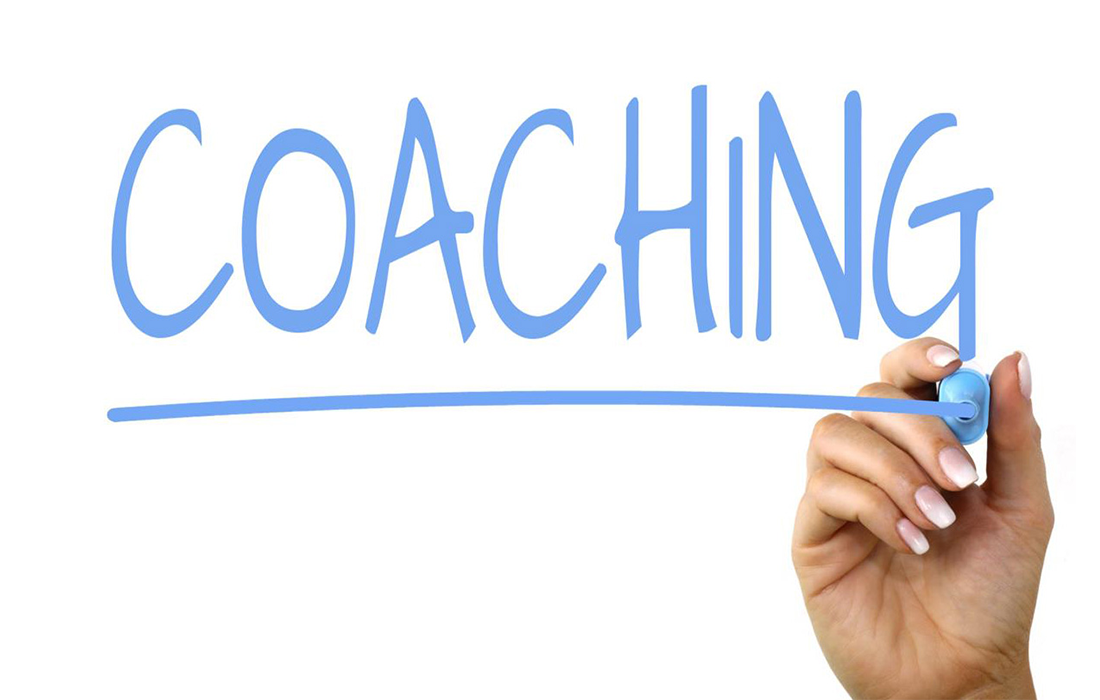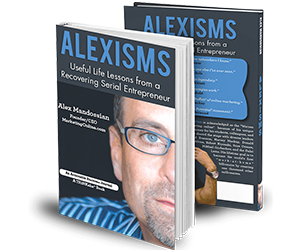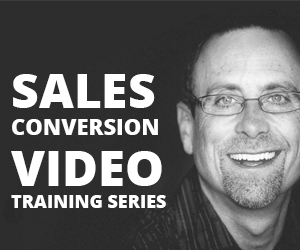5 New Ways to Think About Coaching

I love acronyms. They help me remember stuff.
One thing I don’t need help remembering is how to be a great coach. Teaching is my passion and I’ve been coaching and teaching for many years now. I’m a lucky guy to be doing what I love for a living.
Even as a consultant I teach individuals, small businesses and large organizations how to improve.
But at some point you have to take the training wheels off right?
Don’t ask me. I’m not the one to answer that question because after 25 years of being a professional consultant and coach I still use coaches and get coached!
I believe coaching is a lifelong process. You never stop learning, at least I hope you choose not to stop learning. I haven’t stopped learning so I still need someone to help me with a very specific aspect of learning –
The learning-doing gap.
What is that?
The Difference Between Learning and Doing
There’s a huge difference between learning something and then applying what you just learned. So huge, in fact, that it’s a thing.
In a recent post, Seth Godin talked about this gap with eloquence.
He points out that it took Gastroenterologists an entire generation to change their care of ulcers after scientists figured out that ulcers were caused by bacteria not psychological stress.
Why???
Because habits are hard to change. And new knowledge is hard to trust under duress.
As hard as it might be to accept this, it’s true. We are simply creatures of habit. And when that habit is tied to our livelihood and well-being we are even more entrenched in our old patterns. At least they got us this far right?
Why mess with what works?
Related Post: Don’t Hire A Coach Until You Read This
Related Post: The Secret to Productivity in 8 Easy Steps
Related Post: Take the Guesswork Out of Sales Funnels
Always Be Learning
Because what works has only gotten you so far.
In order to continue to grow and achieve you need to learn new things.
There is something magical about brains.
They are elastic.
Here’s another learning gap. We used to think that the brain stops developing somewhere in our early twenties or even earlier. Sure we learn new things but we stop building synapses and the brain stops growing.
That idea seems downright ridiculous now, doesn’t it?
But that was the commonly held perception of scientists and doctors up until only a few years ago. In fact, now scientists not only believe that our brains never stops learning they insist that healthy brains need to continue learning to stave off aging and dementia.
We’ve come along way baby.
But look at what that information has done. It’s done almost nothing for the healthcare industry and jobs economy, at least here in my country, America. We expect people to finish school, get a job and then…then…well, that’s it really.
Companies are still on the factory setting for jobs. You age-out and the next generation comes in to take your place.
What about the healthcare industry?
In the U.S. dementia and in particular Alzheimer’s is on the rise. Doctors know the risks of poor diet and lack of exercise. But the healthcare industry does very little to educate doctors, nurses, and their patients on these solutions.
The gap is real my friends.
There are so many examples of the chasm between learning and doing that I could keep writing forever.
Give Yourself the Confidence and Certainty You Need To Enroll More Premium Clients Into Your HIGH END Programs — And Get Paid the Prices YOU Deserve!
But I’m not here to write about it. I’m here to do something about it.
In fact, that’s the single biggest reason I’m a coach…to coach people into using what they’ve learned to build successful lives. To close the gap between learning something and then applying it.
And I practice what I preach. At any given time in my life I work with a minimum of three coaches. Correct. Three. I’m always learning new practices for my business so I typically have 1 or 2 coaches coaching me through new processes and implementing them.
Then I usually work with a physical trainer or coach because I love staying in shape and I love getting pushed by someone else. It’s a guarantee that I’ll get pushed harder while staying safe and not injuring myself.
And finally, I work with a coach on personal and spiritual matters. I like to better myself as a human being and usually need someone objective to help me see my blind spots in relationships, even in relationship to myself.
So as much as I coach people I also use coaching in almost every area of my life. I love to learn and I love to discover what I don’t know or can’t see about myself, my business and the world around me.
Coaching is near and dear to my heart. So I created an acronym for my students and clients to remember the coaching ethos I live by while I coach them.
I’ve never publicly disclosed this ethos before. This is a World Premiere of my coaching ethos and I hope you enjoy learning it as much as I enjoy teaching and coaching by it. Onward!

5 Qualities that Embody the Spirit of A Strong Coaching Practice
Compassionate Communication
What’s the best way to get someone to listen to you?
Is it by yelling at them? Nagging them?
When you were a kid were you more responsive to your parents while they were yelling at you or when they put their arms around you and told you they loved you?
What’s the most important gift you can give someone else?
Empathy: the ability to understand and share the feelings of another.
Empathy is the most important tool of a coach. Why?
Because empathy allows you as the coach to understand your client but it does something even more important.
Your empathy allows your client to listen to you and hear what you’re saying.
Empathy allows your client to stop being defensive and start being vulnerable. If you have empathy for someone you’ve created a safe environment for them to learn and grow at your behest.
No empathy. No growth.
When you communicate compassionately you will be heard and listened to as a coach.
Related Post: Don’t Hire A Coach Until You Read This
Related Post: The Secret to Productivity in 8 Easy Steps
Related Post: Take the Guesswork Out of Sales Funnels
Outrageous Objectivity
In order to identify a client’s strengths, weaknesses, roadblocks and blind spots you need objectivity. By stepping back and seeing the whole person you can assess what they know, what they don’t know and what they don’t know that they don’t know.
It sounds silly but these are the blind spots that create obstacles in people’s lives. This is, many times, why people can’t move forward and stay in destructive patterns for years.
When you can assess someone objectively you can assist them in removing the obstacles and stopping the bad patterns and habits.
Objectivity and its cohort empathy allow the client to trust that you can see what they cannot. That trust is what changes their lives.
Absolute Accountability
There’s another type of compassion that I utilize as a coach…ruthless compassion.
As a coach I hold people accountable. And this is a pretty black and white quality for me. I don’t let people slide.
One of my formulas for holding someone accountable is a process of 3 questions. Or what I like to call the 3rd degree 😉 (not really)
- What happened?
- What should’ve happened?
- How can we make it right?
For instance, if someone is late even one time to a coaching session with me we go through this process.
I coach and live by something I learned from my mentor and friend, T. Harv Eker,
How you do anything is how you do everything
Sounds clever, doesn’t it?
Think about it. Take some time and use some objectivity on yourself and mull that phrase over. You’ll find it to be true more often than not. How you show up for one thing is pretty much how you show up for your life. Yes or yes? 😉
So when someone’s late to an appointment with me I assume that’s how they show up to everything. Why assume otherwise?
They’re paying me hundreds, if not thousands, of dollars, and they’re late??? Are you kidding me with this?
If I pay someone thousands of dollars, which I do often, you bet your ass I’m on time. I’m getting my money’s worth. I’m a smart businessman.
If my client is showing up late for our appointment I can already see they’re not acting like a smart businessperson.
Obviously I’m not talking about issues out of your control. But ask yourself, do you really have the balls to show up to a coaching appointment that costs thousands of dollars…late??
Don’t you think I’m going to call you out on that?
But I will do it with compassion 😉
Btw, those three questions are from one of my coaches, Roy H. Williams from Wizard Academy. One of the most brilliant and successful admen of the last several decades.
Concrete Caring
Concrete caring means you’re expressing your care through concrete examples.
When I coach I make sure that my clients know that I’m caring for them and noticing their progress. So I tell them.
Concrete caring simply means pointing out specific examples of their growth, progress and results.
What sounds better to you?
- You’re doing great! Great job! You had a great week of results!
- Last week you took a risk and called that high-end prospect you’ve been afraid to call for a year! I noticed that and I’m really proud of you for taking that action. Look at how far you’ve come? Are you ready to duplicate those results this week?
Example A is enthusiastic but if I’m being coached by this bozo my bullshit detector raises a red flag. Right?? Example A is a bit of a cop-out. It’s ethereal, it’s not concrete.
Example B is specific and detailed. It’s an assessment, not a vague statement. That gives the recipient confidence in herself and trust in your ability to assess and acknowledge.
When you, as a coach, assess specifically, your client trusts your instincts and grows in confidence and courage.
Be like B.
Heartfelt Honesty
Although people have blind spots it doesn’t mean they don’t know anything. They usually know when they’re being lied to or when their coach is not giving them the whole picture.
If a client feels that you’re not being honest with them they’ll detect it and they will shut down. Even if they can’t be honest with themselves that you’re not 100% truthful they’ll know it unconsciously and you will fail as a coach.
This is one of the main reasons I get coached professionally for my business. Honesty is a difficult habit to cultivate.
You think that’s a joke.
How hard is to tell your loved one that they’ve gained a dangerous amount of weight and you’re concerned for their health?
How about telling someone at work to stop emailing you incessantly while you’re trying to finish a project?
Telling the truth is hard! But as a coach you are getting paid to tell the hard truth to someone.
I’ll be honest right now;) I struggle with this and this is why I get coached. Just like most other people, I don’t want to hurt someone’s feelings. But feelings don’t write checks. Feelings don’t put food on the table.
But honesty does.
Honesty writes checks. When you tell the truth people may be shocked but in the very next breath they will be relieved and thankful.
Why?
Because the truth will set you free.
The truth will allow you to course-correct and get from point A to point B which is why they hired a coach in the first place.
So cultivate honesty in your coaching practice. And if you find it hard to coach with rigorous, compassionate honesty then hire a coach to set you right!
You will get more clients with rigorous, compassionate honesty.
More truth = more money.
The Wrap Up
The learning-doing gap is real my friend. It’s almost like a societal blind spot. We learn something new and then when we get back to work or our relationships we do what we’ve always done.
How stupid is that? And yet, we all do it and by ‘we all’ I mean the entire world is a victim of the learning-doing gap. I’ve yet to learn about one industry that has overcome this gap.
That’s why I live by my acronym: C.O.A.C.H.
C.ommunication
O.bjectivity
A.ccountability
C.aring
H.onesty
These are the principles and qualities I coach with and these qualities have not only made me a better coach, they’ve made me a better person. They’ve closed this gap for me and my clients.
But they’ve not only made me a better person they’ve made me a lot of money. I live by what I teach and I practice what I preach.
I’m not only a coach, I’m coachable.
Being coachable is something I’m very proud of in myself. As much as I love to teach, I love to learn. I never want to stop learning. There will never be a time in life when I say, “phew, glad I don’t have to read anymore books.”
How coachable are you? Would you like to have greater impact in your client’s lives? Would you like to be more effective as a coach? Would you like to go for the premium clients with confidence and courage?
Click here if you think you’re coachable and would like to test that theory. I’ll help you discover new levels of success within yourself and your business you never knew existed.
Are you a coach? Are you currently receiving coaching? If not, why not? Join the conversation! >>













